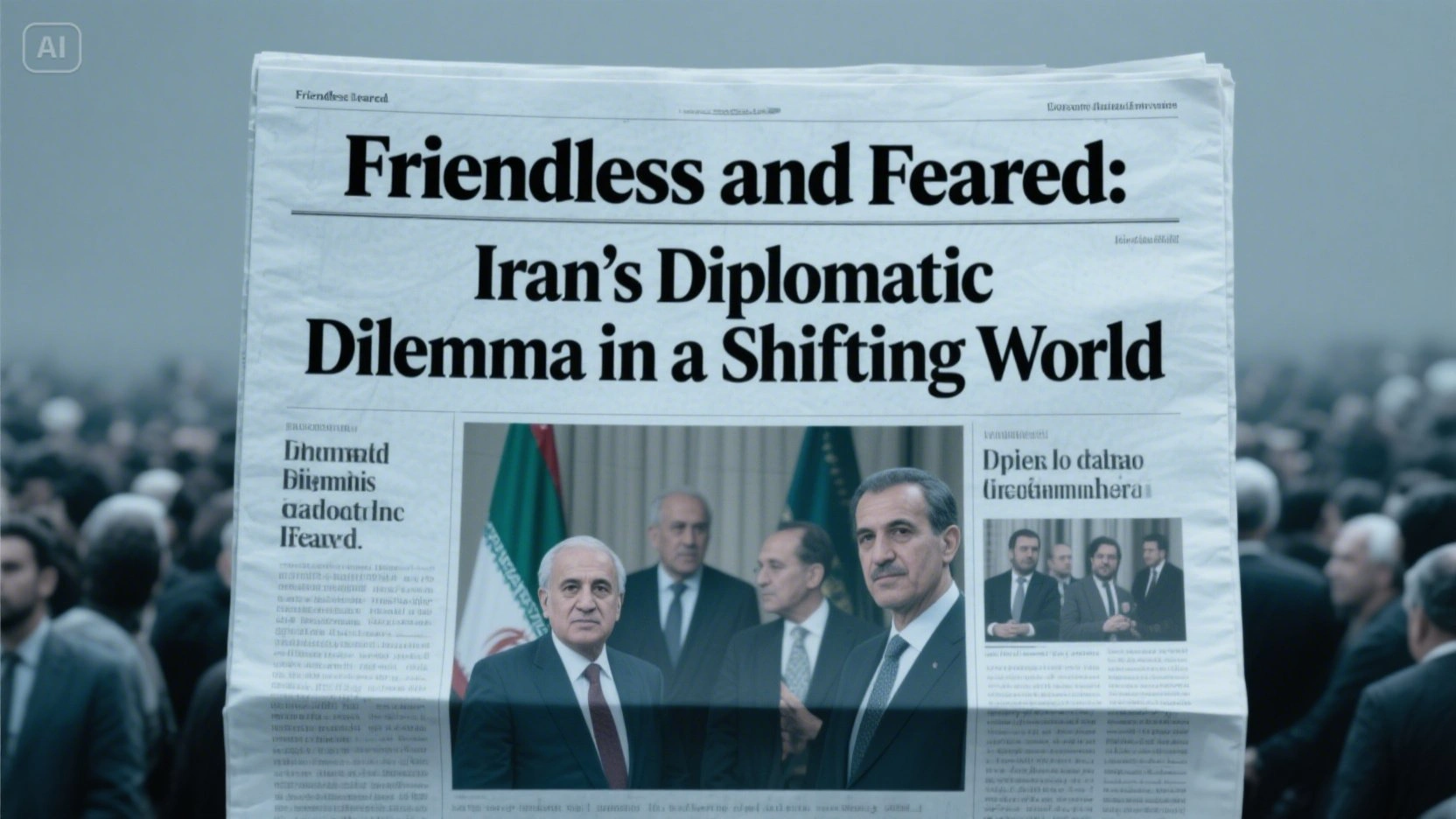Friendless and Feared: Iran’s Diplomatic Dilemma in a Shifting World
 Friendless and Feared_ Iran’s Diplomatic One Nation Voice
Friendless and Feared_ Iran’s Diplomatic One Nation VoiceOn January 16, 1979, King of Iran Mohammad Reza Shah Pahlavi left Tehran for the final time—a moment that marked the end of the Pahlavi monarchy (History.com, 2010). Days later, on February 1, 1979, Ayatollah Ruhollah Khomeini returned to Iran after 15 years in exile, heralding the rise of the country’s first Islamic regime. This event not only symbolized the end of unwanted exile but also signaled the definitive collapse of the dynasty’s hope to return.
Notably, it marked the cessation of dynastic governance in Iran, the decline of liberal thought, and the dismantling of pro‑Western orientation within Persian society. Khomeini assumed leadership of a nation that had once held considerable military influence in the region. As Persian history intertwined with Islamic ideology, the expansionist vision—long abandoned—was resurrected. The new regime committed to extending its influence over neighboring territories and vowed to erase Israel and the US from historical relevance.
On the other hand, Saddam Hussein responded swiftly to this regional shift; yet during its early revolutionary momentum, Iran appeared unstoppable. It witnessed its declared adversaries falter, its proxies advance, and the world grow increasingly cautious of its assertive posture. This period of dominance persisted for over four decades, anchored by the formation of the Revolutionary Guards during the Iran–Iraq War and pursuit of nuclear capability (The Guardian, 2020). However, a miscalculated October 7 incident recently reversed the strategic balance for Ayatollah-led regime of Tehran. Haunted by the prospect of a fate like the Pahlavis, current Iranian leadership is fighting for both regime survival and state continuity.
Iran possesses a civilizational legacy spanning several millennia. When the regime was established in 1979, it inherited a nation free from the burdens of past policies—a rare opportunity for transformative leadership. It could have redefined international posture of Iran, refine its commitments, and restructured its ideological foundation, which it partially attempted through ideological reforms and geopolitical repositioning. However, in the process, it alienated traditional allies while failing to cultivate new strategic partnerships.
To consolidate revolutionary ideals within its territory, it began to sow distrust and hostility even toward potential well-wishers. It challenged the sovereignty of neighboring states, promoted sectarian narratives, and supported militant proxy groups. This approach placed Iran in a precarious position, standing isolated in the region and in direct opposition to Western powers. Along its borders, these aggressive policies led to a protracted, decade-long conflict with Iraq (Hiro, 1991). Religious sites were politicized to serve the ideological objectives of regime. Strategically, Iran chose to align with Russia and India, sidelining traditional partners like Pakistan and other key regional powers. These decisions have rendered Iran diplomatically isolated. Its economy remains stagnant, offering limited opportunities for public welfare and development. Collectively, these strategic missteps now fuel contemporary anxieties over potential regime change in Tehran. To avert such an outcome, a radical departure from the established policy trajectory of the past four decades is urgently required.
While Iran retains a continuous historical identity, the biblical Kingdom of David and Solomon existed briefly in antiquity, predating the Common Era. To elaborate, the territory now encompassing Israel is sacred to all three major Abrahamic religions and was governed by Christian and Muslim empires until the mid-20th century. In 1948, the United Nations issued a mandate to partition the former Ottoman-controlled Palestinian territory, which had been under British administration since the early 1920s (United Nations, 1947). From its inception, Israel was met with hostility from the Arab world. Multiple wars were waged against it—all of which resulted in failure for the Arab states. Israel, leveraging post-Holocaust Western guilt, strategically developed its military capabilities, often ignoring UN resolutions and violating international norms.
Even after occupying the internationally designated neutral zone of Al-Quds Al Sharif, Israel publicly discredited the United Nations. In stark contrast to Iran, whose stated aim includes the elimination of Israel from the geopolitical map, Israel pursued a pragmatic strategy based on timely decisions, diplomatic engagement, and national self-preservation. It consistently maintained key international friendships while ensuring that its core interests were not compromised. Thereof the trajectory of Israel, albeit controversial, offers strategic lessons Iran has yet to internalize.
However, Iran and Israel are not merely sovereign states; they represent two fundamentally opposing ideological paradigms and serve as a compelling case study in contemporary international relations. Their divergent trajectories illustrate the critical importance of strategic timing, balanced diplomacy, and engagement with natural allies. Iran’s decision to position itself in opposition to nearly all potential partners has proven self-destructive. Meanwhile, Israel, despite being accused of human rights violations, continues to benefit from the protective umbrella of strategic alliances (Human Rights Watch, 2021). This serves as a sobering reminder—particularly for Iran—that diplomatic relationships and key partnerships yield significant leverage in international politics.
Had Iran drawn lessons from the cautious and strategically measured nuclear journey of Pakistan, it could have evolved into a major regional power—a nation with a sustainable economy and emerging global influence. In spite of that, Iran chose an alternate path. Its economy is stagnant, its leadership is in crisis, and its people endure worsening socioeconomic conditions. Conversely, Israel, despite its own controversies, continues to strengthen its economy, enhance its defense capabilities, and forge new international partnerships. This contrast serves as a powerful testimony to the workings of a pragmatic and materialist global order.












